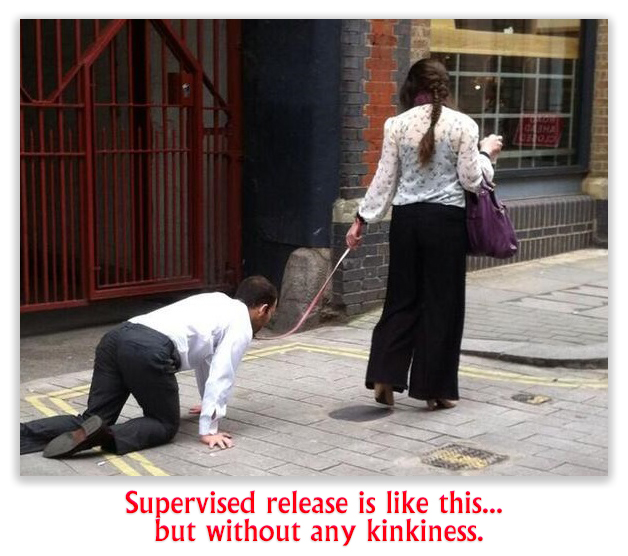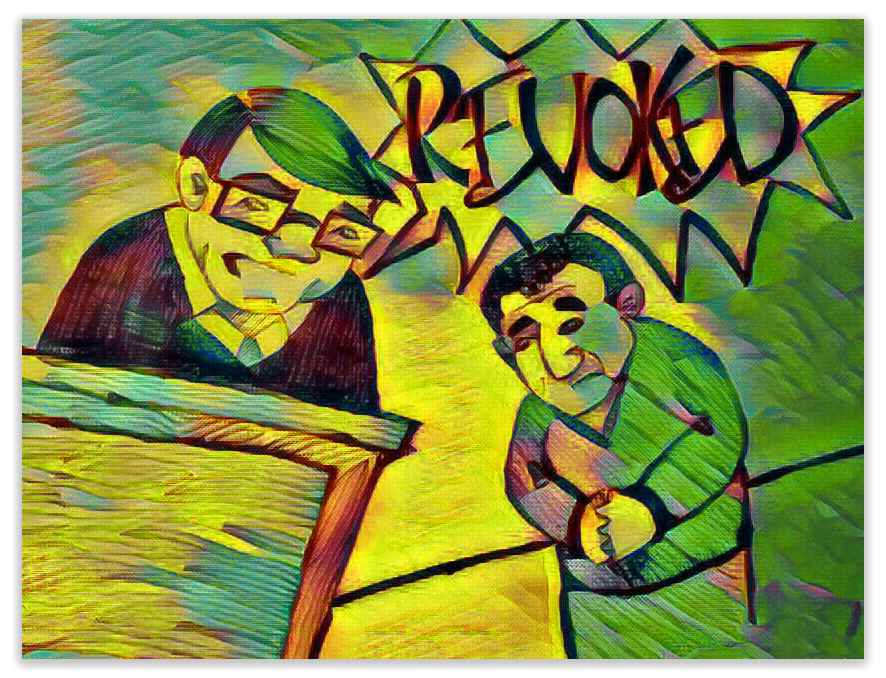We post news and comment on federal criminal justice issues, focused primarily on trial and post-conviction matters, legislative initiatives, and sentencing issues.

A PAIR OF DECISIONS, GOOD AND BAD, ON SUPERVISED RELEASE
 Worrying about supervised release may seem a waste of time for inmates more concerned with getting released from federal prison, but virtually everyone with a sentence of less than life will be on federal supervised release sooner or later. A full one-third of those people will have their probation officers seek to revoke their terms (and send them back to prison) before their supervised release term ends.
Worrying about supervised release may seem a waste of time for inmates more concerned with getting released from federal prison, but virtually everyone with a sentence of less than life will be on federal supervised release sooner or later. A full one-third of those people will have their probation officers seek to revoke their terms (and send them back to prison) before their supervised release term ends.
Supervised release is a term of years, something like parole, imposed after imprisonment. During this period, the released prisoner is subject to a series of conditions – such as holding a job, paying restitution, refraining from new criminal conduct – and reports regularly to a U.S. Probation Officer.
Anthony Foley was on federal supervised release when he was charged with a couple of state drug cases. He neglected to tell his probation officer about them, and – when he was found out – Tony was violated for the failure to report the matter. Tony faced 7-13 months under the supervised release Guidelines. He argued for seven months; the government asked for 13.
The district judge gave him 24 months, saying that Tony’s “criminal history category of five — and his willful failure to notify the probation office within 72 hours of arrest, and I believe, based upon these pending — just pending charges, he’s a continued threat to the community. I believe an upward variance is appropriate.”
Last week, the 5th Circuit reversed. The appellate court held that “a district court errs when it relies on a bare allegation of a new law violation contained in a revocation petition unless the allegation is supported by evidence adduced at the revocation hearing or contains other indicia of reliability, such as the factual underpinnings of the conduct giving rise to the arrest.” Where, as here, “the revocation petition included only bare allegations of new violations of law, and the allegations were not supported by evidence at the revocation hearing and do not have other indicia of reliability,” they were impermissible factors for the district court to consider.”
 Meanwhile, in the 11th Circuit, Jeffrey Hill likewise caught a state drug case while on supervised release. During his revocation proceeding, he filed a motion to suppress evidence he said resulted from an illegal search. The district court ruled that suppression of evidence because of a 4th Amendment violation – the exclusionary rule – does not apply to supervised release revocations.
Meanwhile, in the 11th Circuit, Jeffrey Hill likewise caught a state drug case while on supervised release. During his revocation proceeding, he filed a motion to suppress evidence he said resulted from an illegal search. The district court ruled that suppression of evidence because of a 4th Amendment violation – the exclusionary rule – does not apply to supervised release revocations.
Last week, the 11th Circuit agreed. Because suppression of evidence imposes “substantial social costs,” including “its toll on ‘the truthfinding process, its incompatibility with the traditionally flexible, administrative procedures of parole revocation, and its frequent necessity for extensive litigation to determine whether particular evidence must be excluded,” the Supreme Court has held the exclusionary rule does not apply in state parole hearings. The Circuit said in light of that, it could see no reason why the exclusionary rule should not apply to supervised release revocation hearings.
United States v. Foley, 2020 U.S. App. LEXIS 61 (5th Cir. Jan. 3, 2020)
United States v. Hill, 2020 U.S. App. LEXIS 51 (11th Cir. Jan. 3, 2020)
– Thomas L. Root

